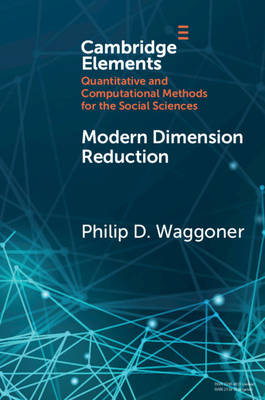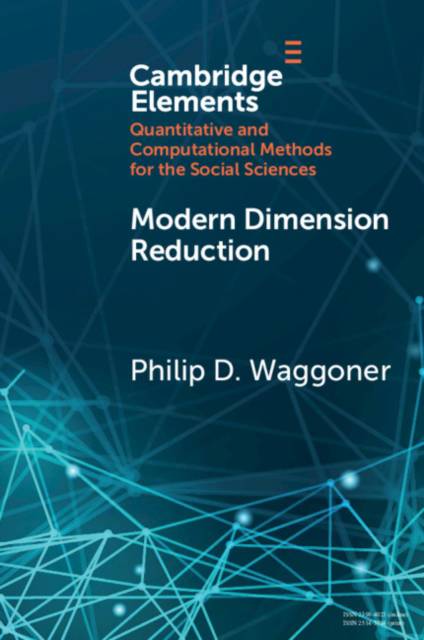
Door een staking bij bpost kan je online bestelling op dit moment iets langer onderweg zijn dan voorzien. Dringend iets nodig? Onze winkels ontvangen jou met open armen!
- Afhalen na 1 uur in een winkel met voorraad
- Gratis thuislevering in België vanaf € 30
- Ruim aanbod met 7 miljoen producten
Door een staking bij bpost kan je online bestelling op dit moment iets langer onderweg zijn dan voorzien. Dringend iets nodig? Onze winkels ontvangen jou met open armen!
- Afhalen na 1 uur in een winkel met voorraad
- Gratis thuislevering in België vanaf € 30
- Ruim aanbod met 7 miljoen producten
Zoeken
Omschrijving
Data are not only ubiquitous in society, but are increasingly complex both in size and dimensionality. Dimension reduction offers researchers and scholars the ability to make such complex, high dimensional data spaces simpler and more manageable. This Element offers readers a suite of modern unsupervised dimension reduction techniques along with hundreds of lines of R code, to efficiently represent the original high dimensional data space in a simplified, lower dimensional subspace. Launching from the earliest dimension reduction technique principal components analysis and using real social science data, I introduce and walk readers through application of the following techniques: locally linear embedding, t-distributed stochastic neighbor embedding (t-SNE), uniform manifold approximation and projection, self-organizing maps, and deep autoencoders. The result is a well-stocked toolbox of unsupervised algorithms for tackling the complexities of high dimensional data so common in modern society. All code is publicly accessible on Github.
Specificaties
Betrokkenen
- Auteur(s):
- Uitgeverij:
Inhoud
- Aantal bladzijden:
- 75
- Taal:
- Engels
- Reeks:
Eigenschappen
- Productcode (EAN):
- 9781108986892
- Verschijningsdatum:
- 5/08/2021
- Uitvoering:
- Paperback
- Formaat:
- Trade paperback (VS)
- Afmetingen:
- 152 mm x 229 mm
- Gewicht:
- 140 g

Alleen bij Standaard Boekhandel
+ 63 punten op je klantenkaart van Standaard Boekhandel
Beoordelingen
We publiceren alleen reviews die voldoen aan de voorwaarden voor reviews. Bekijk onze voorwaarden voor reviews.











